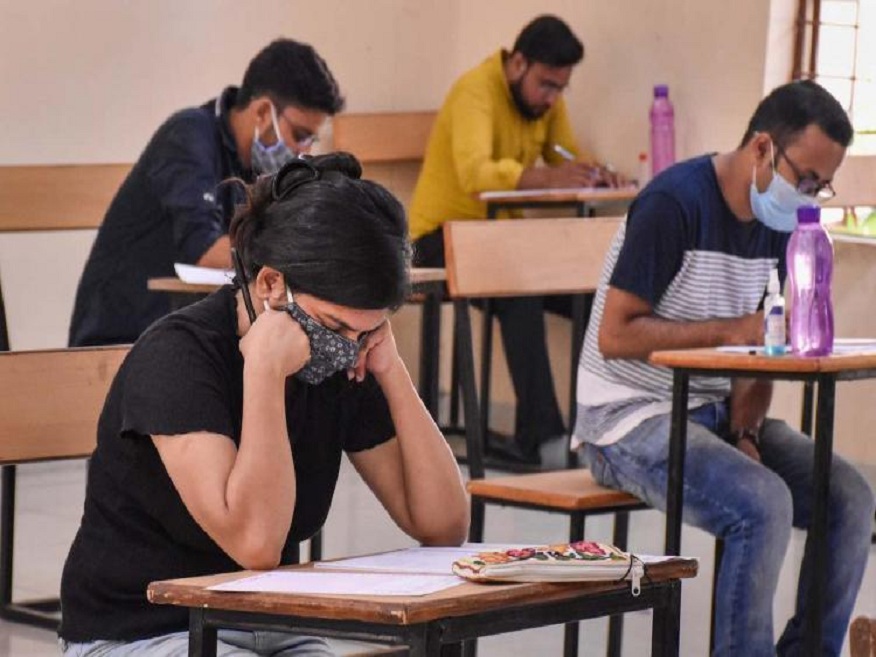
Since you made the decision to resume your studies, you have only one objective in mind: to pass your course and obtain ministerial units. You’ve been working hard to achieve your goal for weeks, maybe even months. Yes, but there is one more step to take: the famous exam.
For many, this can bring insecurity and stress. It is possible that you have experienced difficult times related to exams in the past and that you have bad memories of them. But tell yourself that things have changed a lot since then. You have grown in maturity and confidence. And after all, an exam is like the rest; it’s getting ready . Since you’ve studied well, taken your teachers’ advice, and done extra exercises, if needed, there’s no need to panic.
The exam is a compulsory passage which only serves to ensure that you have correctly retained the essential notions of your course.
Of course, you are the only one who can take the exam (and pass it), but to help you we have compiled some points that we think are important. The day before an exam is a crucial moment.
By following our little recipe, we promise you will feel more confident and serene!
1. Read your notes carefully
Obviously, the day before an exam is not the right time to learn all of your course. Anyway, you already know all the material and you have been well prepared by your teachers. Before an exam, it is recommended not to overload yourself too much and to reread only the essential points of your course. It’s time to bring out your course notes as well as your bestmind maps and flash cards
It might also be a good time to take a look at theevaluation gridof your course. It will allow you to assimilate the distribution of points on the exam and the important concepts to master.
2. Prepare your things carefully
An exam is a stressful enough event like that, no need to add to it by neglecting the organization and the logistics. We advise you to prepare the day before in order to limit unnecessary stress when the day comes. For this, make sure you have everything on hand: pens, calculator, book, note sheet and of course, your identity document. If you are not sure what you are allowed to bring to the exam, ask your teacher for confirmation.
A little tip : don’t forget to bring you a snack like nuts, fruit or a granola bar as well as a bottle of water. Now is not the time to be distracted by your hungry stomach or your parched throat!
3. Check the route to your exam location
The last thing you want is to be late for your big day. To prevent this from happening, check the route you want to take in advance. If you travel by car, for example, make sure that there are no major works on the road. We also suggest that you find out about parking near your exam location.
If you use public transport, remember to allow enough time for all the little unforeseen events. Hearing an announcement signaling a service interruption a few minutes before an important exam: there’s nothing more stressful!
4. Boost your diet
Food plays a very important role in your health and your body (and therefore your brain).Some of themare even reputed to improve thememoryor focus. We don’t tell you that changing your diet overnight will allow you to pass your exam as if by magic. On the other hand, food is the real fuel of your body and it is wise to choose it well. It’s time to fill upessential vitamins and minerals. Besides, let’s be honest, the day before an exam is not the ideal time to eat a big, heavy and greasy dinner that could upset your digestion all night. 🥴
On the morning of the exam,we recommendto eat a rather carbohydrate-rich breakfast, such as whole grains or oatmeal. It will allow you to last all morning without being hungry in the middle of the test. Although it may be tempting, try not to drink too much coffee or any other energy drink, which could increase your level of anxiety!
5. Forget the sleepless night
Each person is unique and there are no recommended ideal hours of sleep. That said, an adult generally needs 8 hours of sleep per night. So yes, it can be tempting to revise all night the day before an exam. Unfortunately that wouldn’t help. At this point, everything is already settled! It’s not the time to go to bed at 2 a.m.. The most important thing is to present yourself properly rested for the exam. Especially since lack of sleep can lead to stress, irritability, but also attention deficit and memory loss which can haveserious consequences on school performance. Moreover,a studyreveals that 36.3% of Canadians over the age of 18 with insufficient sleep report experiencing chronic stress compared to 23.3% among those with adequate sleep.
So avoid passing too much time on your screenin the evening, which disrupts the sleep cycle. Take a good book and go to bed early!
6. Take time to breathe
There aremany activitiesthat can help you reduce your stress related to an exam. One of the simplest and yet too often overlooked is breathing! You will find on the internet many itemsOr videosdealing with the subject as well as step-by-step exercises to introduce you to this powerful anti-stress tool, to be practiced without moderation.





